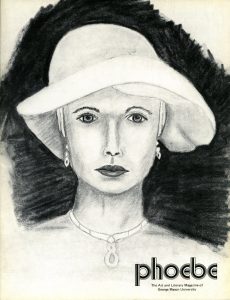At the grand hotel
the children are incredibly few
and always lost
playing hide-and-seek with nurses and grandparents
bored enough to watch
a kitchen man paring carrots
sensibly wary of the ritual
of watching parents eating, parents drinking,
quarrelling,
parents depositing them with grandparents.
Seldom for them is the feeling of rejection
resolved by the p.a. announcement
the public concern
the rush of mother in damp bathing suit.
And, at the neighborhood bar,
somewhere in the process of having a beer,
chalice for the night,
I, kitchen man, listen,
listen to talk of fish and chips,
to talk of fish and king-fish and fish-queen,
know what goes into the making and carrying
of the hors d’oeurves trays
listen to the tory wanderer
for the tory hotel
mimic a tory rhetorician
mimic himself
wonder (myself) why regeneration
and ritual and ceremony
should be exclusively for the guests
and the route from hotel
to neighborhood bar and norske hop
not easily reversed by kitchen man.
Tomorrow, presumably, will be clear
clear weather is important
if there is to be a parade
parade with hors d’oeurves trays.
There are no castles on the north Jersey shore
only sprawling luxury hotels
hulking over villages
holding summer workers
captive even from the township beach.
It’s always possibly on a clear day
to see the lower Manhattan skyline
or, at night,
the lights from Coney Island and Rockaway.
Enough of this ritual,
this transmutation,
the yes sir,
the elegant conveying of fish.
Grains of sand still tumble from the book
recalling both wound and weather
when neither tourist nor fisher king
was I, but kitchen man
grabbing at hours on the public beach
fearful of dunning letters
reading, during the afternoon
volumes of remaindered verse
sold by a national drug store chain.
I was the bearer of the trays
of hors d’oeurves
quester and quested
with double misgiving as to role
inept in the process
a dropper of silver
a misplacer of the lance
tempted to quarrel
with the inequity of the tipping system.
No return for the bearer of the trays
reluctant to ask the question
reluctant to give someone else
a chance to answer
when I considered
all that the giving of the answer
could ever make for.
In the night there was the blare
of the juke-box
communal therapy and ceremony in neighborhood honky-tonk
across from the grand ramshackled hotel
and down the sandy highway swedes and norske danced
making it difficult
for kitchen man
to share ritual or romance with summer guests
only possible to delight in clear weather
the personal healing of personal wound.
In the day
there was the dirty pulsing of waves
the return of battered contraceptives
the p.a. system announcing
relevance and irrelevance
on the public beach
The time of day
A small child is lost
Mother, please come and get.
Tomorrow, another child will get lost
on the public beach
while at the grand hotel
the idle children of idle parents
remain incredibly lost.
Someone, a kitchen man perhaps,
neither tourist nor fisher king,
will have a beer
read more verse
hear the juke-box blaring in the night
recognize the pattern
reject the idle ritual
nurse his own wound
ask and answer his own question
know tomorrow will be clear.
John Burnett Payne was born in 1919 in New Mexico, but grew up in Lexington, Kentucky. He attended Transylvania College from 1935-1938. In 1938, he enrolled in the University of Cincinnati, obtaining his master’s degree in English and American Literature. In 1951, Payne moved to New York and began his teaching career at Pratt University. He published poetry in Wind, ManRoot, Charas, Kauri, and Stonecloud as well as two chapbooks in the 1970s – Ghosts Scare Tito Rosa and Tell Me You Love Me, Con Edison – with Kirby Congdon and Interim Books.
Payne began working on a biography of Daniel Fuchs which was never completed nor published. In addition to writing and publishing his own poetry, he worked as a reader for Lancer Books and Avon Books. During the 1960s and 1970s, Payne also wrote book reviews for the Alton Democrat, a daily newspaper in Iowa. He was part of the New York Poets’ Cooperative and appeared at poetry readings throughout New York City. He was active in the poetry scene until he died in 1986. Payne’s papers are collected in the Temple University Library.
